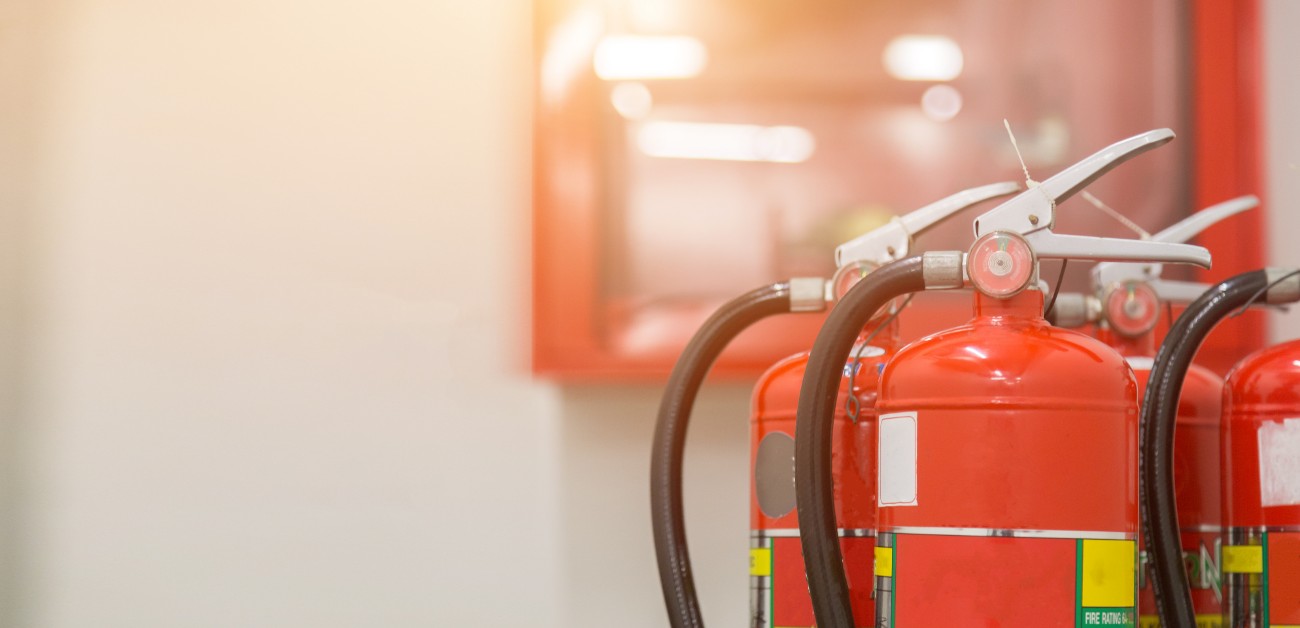Everyone knows that food and drinks come with an expiration date. But what you might not realize is that even non-food items have a shelf life —even though you might think they will last forever. These items usually don’t require much attention, which is why you might not realize they’ve gone bad since you first stored them away.
Certain items need to be checked every so often to make sure they’re still effective and able to be used when you need them. The sooner you realize they’re no longer good, the less of a hassle it will be to replace them.
Here are five goods that you’d never expect to expire, but can go bad eventually.
1. Fire Extinguishers
A fire extinguisher is something you never want to use, but it’s important to always have on hand just in case. If you’re fortunate enough to have never used the one sitting in your house, then you might not know if the fire extinguisher is in need of a replacement or recharge.
The average lifespan of a fire extinguisher is anywhere from five to 15 years. Typically, a fire extinguisher can be refilled or “recharged”, but the material inside does eventually expire. The exact number depends on a few factors such as the manufacturer, size, and type of extinguisher. Ultimately, you should read the manufacturer guidelines for specific information on your extinguisher.
There are two main types of extinguishers you might have in your household and both should be checked regularly. For extinguishers with a gauge, experts suggest getting it looked at annually by a professional so they can update the tag as needed. Those with a dry chemical extinguisher should shake the device monthly to prevent the material inside from settling.
2. Hand Sanitizer
If you have an excess amount of hand sanitizer on hand for safe keeping, you should know it does have a shelf life — if it’s been opened.
Generally, you don’t need to worry about the effectiveness of a hand sanitizer after it’s just been opened. But if you’ve been keeping the same bottle of hand sanitizer for years and years, you might want to check it. Once the seal is broken or the bottle has been opened, the product has a shelf life of two to three years.
Hand sanitizers should be 60 percent alcohol to rid your skin of germs. After it’s been open, the sanitizer can lose some of its alcohol because of evaporation.
3. Batteries
In an emergency situation, batteries can be one of the most handy things to have. This item should have an expiration date written on the packaging.
Battery manufacturers put a date on their products not necessarily because the battery won’t work at all after the expiration date, but because they can no longer guarantee a full life of charge. Additionally, if batteries aren’t properly stored, it can shorten their lifespan. For example, if batteries are kept in hot temperatures in a device, chemicals could leak from the battery. The suggested temperature to store batteries is 59 degrees fahrenheit.
That being said, you should check batteries currently being used inside devices, especially vital safety gadgets such as smoke and carbon monoxide detectors. Chances are if you can’t remember the last time you changed the batteries, then it’s time for a replacement. Be careful of potential chemical discharge that may have occurred if you haven’t replaced them in a while.
4. Bottled Water
Water is one of the most important things to have at home in case of an emergency. And if you’ve ever stocked up on bottled water, you probably noticed that water actually does have expiration dates printed on its packaging. Although the water itself doesn’t expire, the bottle that it’s packaged in does.
It all depends on how the water is stored. If it’s left in hotter temperatures for an extended period of time, a harmful chemical called antimony could be released into the water. This is a silvery metal that’s been linked to lung and heart problems.
That’s why storing water bottles in places where it gets hot, such as the trunk of a car, is not advised. You can avoid potential danger from bottled water by keeping it in cooler spots in the house and by not putting it in direct sunlight or heat.
5. First Aid Kits
First aid kits are another household item you hope that you never have to use. It’s a good thing to have, especially one that’s stocked with bandages, gauze, ointments and medication. Experts suggest checking the contents of your kit once every three months.
However, items inside a typical first aid kit do expire, just not necessarily at the same time. For example, adhesive bandages and medical tape might be defective after a certain period of time because the glue and latex will break down. Cotton gauze can last for years before needing replacement.
Check the expiration dates on any medicated oil, antiseptic cream and muscle pain relief ointment. Using these expired products is risky because of the chemical ingredients used. The same goes with any tablets and capsules. Don’t use these past the expiration date because you could risk developing an infection or irritation.
Check For Other Items That Might Expire
You might not worry much about expiration dates. However, no one wants to discover that their most important supplies have expired when an emergency happens. It’s important to check expiration well before you might need certain items in a pinch. Be aware of the lifespan of these items in your house. Replacing them ahead of time will save you the worry of wondering if it’s safe to use when you need them.
Whether you use these items frequently or keep them stored in case of emergency, it’s always smart to keep certain supplies on hand. You never know what can happen, so stockpiling some essential goods that have a long shelf life is a great way to be prepared for anything.
